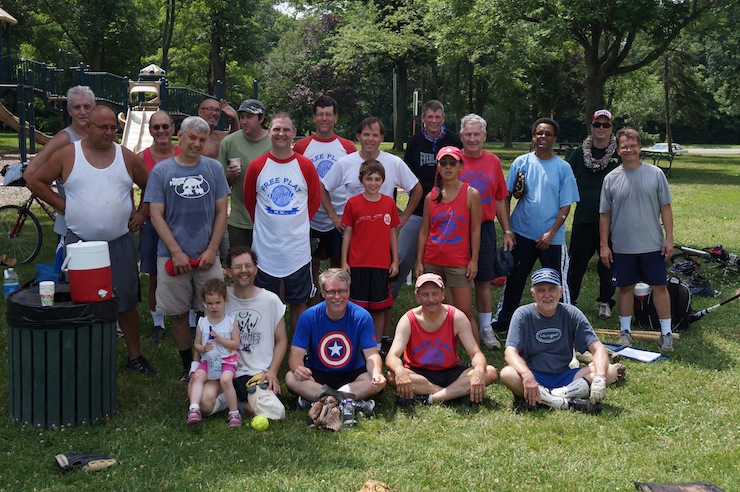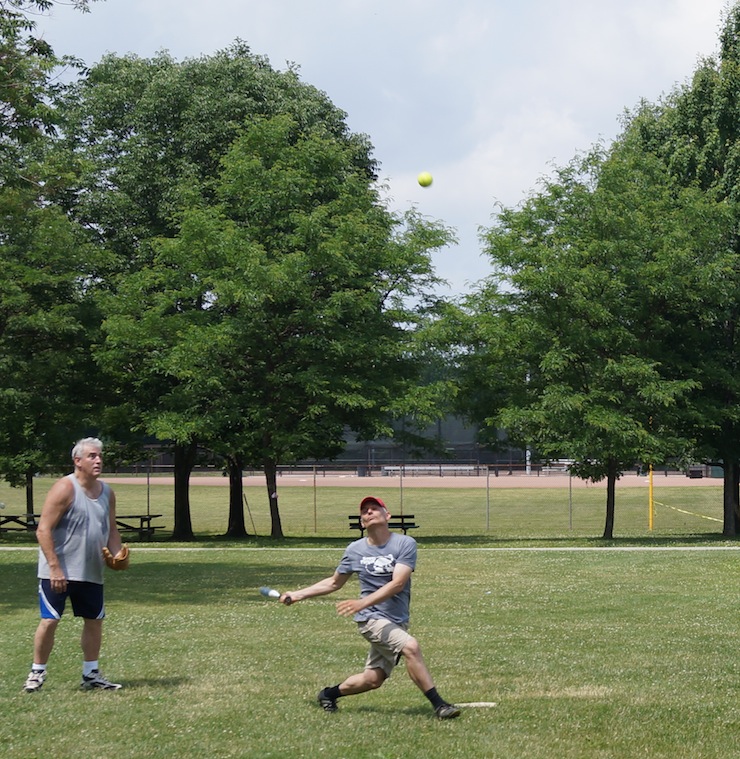
Our foray into animating mostly aging bodies for the purpose of continuing the autopoietic experiment set course on a perfect June day.
Last week featured a walk-off comeback, but Sunday’s game echoed the game two weeks before, the bottom of the order of the visitors–the visiting team being the team I place Mark Jr. on–came through again with lots of seeing-eye hits. To make the self-organization of the mismatch possible, Jedi Matt arrived late, after Pete, “shirtless, above average first baseman,” and automatically was placed at the bottom of the home team’s line-up.
Driving away after the game, I slowed down to complement Jedi Matt on his five hits in five at-bats day–including a homerun, and he in his modest way, reminded me he is over two weeks, ten-for-ten. I have to emphasize modest too: for the twelve years I have been playing Free Play Softball Matt has not once become entangled in any drama, any vaunting of any outcome, and, even his reminder about his performance carried with it no inflection of self-aggrandizement. Yes, Jedis are like this!
Where is this ball headed?
I tease Katz, asking him when he arrives,
Which Katz is showing up today?
The effortless fielder and crafty hitter has been showing up recently.

Niklas Luhmann suggests new framework for understanding society that society is an autopoietic system, in other word, society is the nexus of communication. He insists that the element of the society is communication, not actor nor action.
Purloined from Naruse, Iba; Ecosystem as an Autopoietic System Considering Relationship between Ecology and Society based on Luhmann’s Theory [pdf].
(Being a cybernetics kind-of-dude, any event that constitutes a difference making the difference is communicative; this includes all such events in the closed system of a softball game. Example: a hit or a catch encapsulates the embodied psychic intention; so a hit or a catch enacts the communication in the physically permeable agentic structure of the game’s social system. A game structures the possibilities for emergent instances of communication and so a game instantiates events that reflect, and briefly ‘incarnate,’ the foamy, non-substantial, psychic intentions.)



